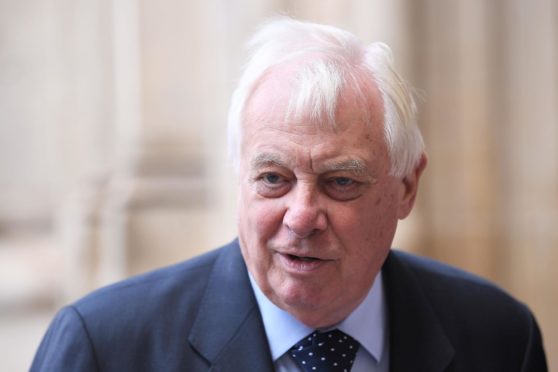‘I don’t think that Mr Johnson is a Conservative, I think he is an English nationalist,” Chris Patten declared last weekend.
The former Tory cabinet minister had been asked about the UK prime minister’s role in bringing about Brexit during an interview with the BBC to discuss developments in Hong Kong where, during the 1990s, he served as governor of what was then Britain’s last imperial outpost in Asia.
‘All the things that Conservatives used to believe in,’ Lord Patten continued, ‘like standing up for the Union, like not attacking our institutions, like believing in international co-operation, seem to have gone out of the window.’
In their place was a ‘runaway train of English exceptionalism’. this once-prominent Conservative suggested, adding that he had no idea where that train would ‘take us in the end’.
All nationalisms depend on millions of people, the overwhelming majority of whom will never meet each other, believing that all of them are bound together by a shared identity. Almost by definition, this identity is rooted in what’s felt to have shaped the nation in question. There’s thus a big historical component to what distinguishes my nation from yours, what marks out your nation from someone else’s.
These notions aren’t fixed. They shift, they alter, they evolve. Not all that long ago, after all, it was considered widely – not least in England itself – that English national identity had vanished from sight as a result of its having been submerged in a Britishness shared with the Scots, the Welsh and (at least some of) the Northern Irish.
The politics of Brexit have revealed this to be an illusion. Opinion polling has shown that a substantial majority of the Conservative Party’s English members would happily countenance both Scottish independence and Northern Ireland’s merger with the Irish Republic if the consequent break-up of the UK were to be the price of taking England irrevocably and completely out of the European Union.
The ‘separatism’ of which Scottish nationalists are frequently accused is thus just as evident now in England – perhaps more evident in that, unlike the SNP who wish to retain Scotland’s links with the EU, England’s Brexiteer nationalists seem happy to press for an England that’s severed all but the most minimal connection with neighbours near and far.
Bound up with thinking of this sort is what Chris Patten calls ‘English exceptionalism’ – a sense that to be English is not just to be different from the citizens of other nations but to be in some way superior to them.
Hence the evident hankering in Brexiteer ranks for the long-gone era when to be English was supposedly to preside over ever-spreading colonies, to rule the waves and to emerge victorious from war after war with Germany or with France – countries now conspiring with others (or so it’s alleged) to subject Britain in general and England in particular to the dictates of a trans-European superpower ruled from Brussels.
Lost to sight in this notion of England – one that surfaces regularly in Boris Johnson’s bumbling bombast – is an alternative reading of English history as a story of how, over several centuries, England’s ordinary or common people managed to free themselves from tyranny and exploitation of a wholly homegrown sort while, increasingly, demonstrating solidarity with other, often faraway, victims of oppression.
This story’s heroes aren’t warrior kings or empire builders.
They’re people like the itinerant preacher John Ball who, during the Peasants Revolt of 1381, pressed for greater equality by asking: ‘When Adam delved and Eve span, Who was then a gentleman?’
They’re people like the Cromwellian soldier Thomas Rainsborough who, in 1647, made this powerful case for a long-to-be-denied democracy: ‘The poorest he that is in England hath a life to live as the greatest he; and therefore I think it’s clear that every man that is to live under a government ought first, by his own consent, to put himself under that government.’
They’re folk like the Lancashire cotton workers who, during the American Civil War and at the cost of inflicting great hardship on themselves and their families, refused to handle cotton picked by distant slaves – a stance President Abraham Lincoln described as ‘sublime Christian heroism’.
There’s everything to be said for English people taking pride in England. But this England doesn’t have to be the England of Brexiteer sabre-rattling, intolerance and isolationism. There are other – arguably more attractive – Englands available. It might be good if they were to be rediscovered in Westminster and beyond.
Jim Hunter is a historian, award-winning author and Emeritus Professor of History at the University of the Highlands and Islands

